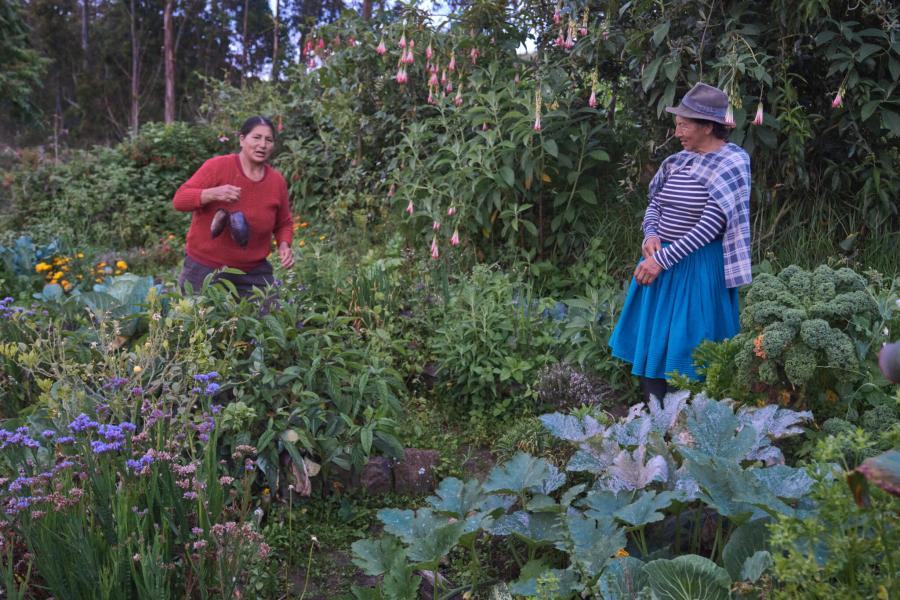The Innu
In March 1990, NATO announced that it had chosen the preferred site for the low-flight training base. Dashing the hopes of Canada's Department of National Defense, NATO selected Turkey. To many observers the announcement appeared to end the controversy over the placement of a military training facility involving low-level flying over the land of the Innu people of Labrador, but the reality is that the existing level of low flights (7,000 per year) will continue and may well increase.
Meanwhile, the Environmental Assessment Panel wrote the minister of national defense to confirm that the Environmental Impact Statement filed by the department was inadequate in many respects. Hearings cannot commence until the gaps have been met with additional information. (Cultural Survival (Canada) filed an extensive brief with the panel arguing that the report should be rejected as inadequate in its entirety.) While the panel appears to assume that its life and mandate are unaffected by the NATO decision, within the Department of National Defense there is a move afoot to disband the panel and, if necessary, appoint a new panel to deal with the existing level of flights. It is widely known that DND and certain Labrador residents who favor the base no longer view the panel as impartial.
The trial of Innu and members of the Catholic brotherhood in Labrador was finally held in April, following the change in status for the proposed base. The Innu and their supporters had blocked the runways of the Goose Bay base nearly a year ago, facing mass arrest. The judge found them guilty of "mischief" and sentenced them to a day in jail. He ruled that the day in court counted as the serving of the full sentence. The moral victory coupled with the NATO decision has increased hope among those in Labrador that they will be able to stop the terrorizing low flights.
The Algonquin
Throughout the winter of 1990, the Algonquin of Barriere Lake have fought the issuance of the forest licenses for their area of Barriere, Quebec (approximately 100 km north of Ottawa). The Algonquin live in a "wildlife preserve" that has already been 50 percent clear cut. They are not against logging, but wish to pursue a sustainable development strategy that, while allowing for some logging, does not result in the wholesale loss of their land base through clear-cutting. In December the provincial government promised to postpone the issuance of the forest license until the Algonquin could be consulted. No progress was made, and despite an attempt by the Algonquin to obtain a court injunction against their issuance, the minister of forests for Quebec signed the licenses. At this writing, the Algonquin are preparing for further court challenge leading to a full trial on the issue. As well, it is likely further blockades and arrests are in the offing.
James Bay
The Grand Council of the Cree and the mixed Inuit/Cree community of Great Whale River have spearheaded a major campaign against the next phase of hydroelectric development in northern Quebec. The third-largest company in Canada, Hydro Quebec, which is owned and operated by government and known as a "Crown" corporation, plans to dam the last free flowing rivers into James Bay. The area to be affected is the size of France. To raise awareness of the project and its impact on the life and culture of the Cree and Inuit people, the community of Great Whale River launched on Odeyak from Great Whale to New York City. (The Odeyak is half canoe and half kayak to present the two cultures of the area). They left Great Whale by dog sled team and arrived on 20 April in Manhattan in time to join the Earth Day festivities on 22 April. The Odeyak's stop in Montreal coincided with the meeting of the Inter-American Development Bank, which attracted prominent environmentalists from Latin American. Notably, Fabio Feldman, congressman from Brazil and a leading advocate of indigenous rights, left the conference to join the Cree at a downtown Montreal rally against the proposed James Bay development.
In addition to the public awareness campaign, the Grand Council of the Cree has filed an action in federal court demanding a full federal environmental assessment of the project. The first phase of James Bay received to environmental assessment. As a result of the Odeyak's trip through Ottawa, which included an emphasis on pressuring federal politicians, federal Minister of the Environment Lucien Bouchard committed to hold a federal inquiry.
Environmentalists and indigenous activists are increasingly aware that James Bay will be the battle of the decade.
Temagami
In a historic breakthrough, the government of Ontario has finally responded to the demands of the Teme-Augama Anishnabai (the "Deep Water People") of northern Ontario for the protection of their forest. The forest in the Temagami region include some of the province's last stands of old growth white pine. More than 300 people - native and non-native environmentalists - have been arrested blockading the building of a logging road to open up more of the area. The situation had been deadlocked for months, with little indication of governmental flexibility, until 23 April, the day after 100,000 people gathered in downtown Toronto for Earth Day celebrations in which the Temagami conflict figured prominently. On 23 April the Ontario government announced that a critical area of 40,000 hectares of Temagami forest would be managed through a stewardship agreement in which the Teme-Augama Anishnabai hold the balance of power. The government also purchased the local saw mill and plants to shut it down. No further cutting permits will be given in the area. The stewardship agreement provides for a joint board of natives and non-natives to make all decisions relating to the harvesting of the local forest.
Chief Gary Potts, leader of the Teme-Augama Anishnabai said, "This is the first time in 113 years that the Teme-Augama Anishnabai is signing a document that begins the process toward our vision of co-existence and certainly for our future... We applaud the courage that the Ontario government has shown in taking this first step." The announcement represents a significant victory for the Teme-Augama Anishnabai people.
Article copyright Cultural Survival, Inc.



